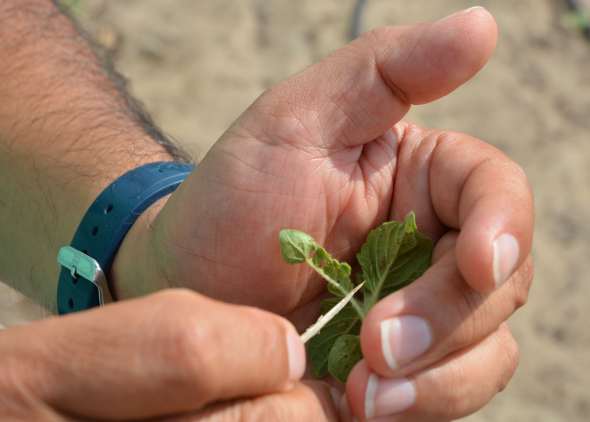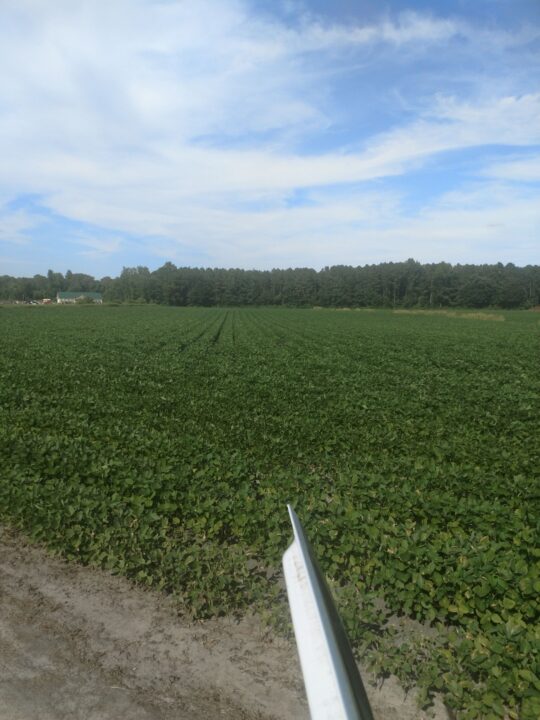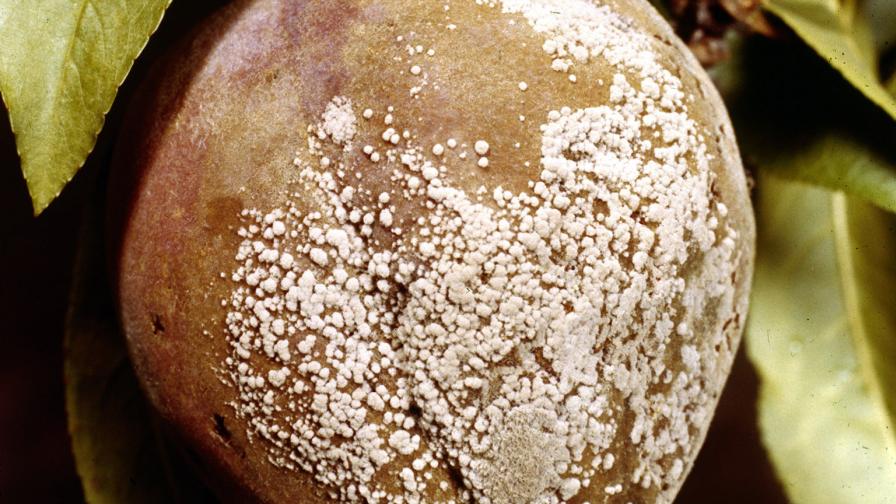Beneficial Insect Causes Problems On Tomatoes

Raul Villanueva points to two tomato bugs so small they are barely visible on a sesame plant. Photo by Rod Santa Ana, AgriLife Communications
An insect considered beneficial in other parts of the globe is problematic on vegetable crops in South Texas, according to a Texas A&M AgriLife Extension Service entomologist in Weslaco.
“We first found this insect, Nesidiocoris tenuis, commonly referred to as N. tenuis or the tomato bug, in commercial field crops in the Rio Grande Valley in October 2013,” Raul Villanueva told Texas A&M’s AgriLife Today. “But now we’re finding it in abundant numbers on tomato crops throughout the area. It’s causing fruit drop on both tomato and sesame crops. It’s now well-established here.”
According to the article, growers have to spray insecticides to stop this pest because of its extremely high populations. In some instances, hundreds have been found on one plant.
“What’s really interesting about this insect is how it got here,” Villanueva said. “I suspect that somebody illegally brought a bottle of these insects and intentionally released them either in Mexico or the U.S.”
The tomato bug is originally from India and is commercially available in Europe to control whitefly populations in greenhouses.
“The illegal release was likely made to control whiteflies in greenhouses,” he said in the article. “They are a good predator of whiteflies and work very well. They prey at all stages, but especially as nymphs. But outside greenhouses they can cause a lot of problems, like we’re seeing here now. So, it’s a two-edged sword.”.
On tomatoes, Villanueva said the pest feeds on plants, causing flower abortion. This, in turn, reduces nutrients and causes the flower to drop, which reduces yields.
Click here to read the full story on AgriLife Today.
Source: Texas AgriLife, Rod Santa Ana










